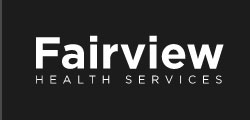If you could see if cancer possibly awaits in your future, would you look? That is the type of question you face in the era of genetic testing. Thanks to advancements in science, just about anyone can see into their health future.
Even though you can, should you?
Advanced Oncology Certified Nurse Practitioner Kimberly Pettinelli from the Medical Oncology department at Fairview Range in Hibbing helps you explore this question and shines a light on the interworking of genetic counseling and testing.
Pettinelli has been with Fairview Range in Medical Oncology for almost nine years. She works closely with the Cancer Risk Management Group at the University of Minnesota and also works with patients undergoing cancer treatment and performs cancer surveillance for those who have already undergone treatment.
Fighting cancer is never easy. The best way to fight it is to find it early. That’s where genetics comes in. When someone discovers they have a genetic mutation, they see Pettinelli to review and provide recommendations for screening and managing these screenings.
But how do you even start to suspect you have a genetic mutation? The first step is looking at your family history and personal history. Maybe your mother and grandma both had breast cancer or you survived cancer at an early age. Genetic counseling can help you determine if you’re a good candidate for testing and the testing itself will show you if mutations do exist.
At Fairview Range, you can get both done. First, you would speak with one of the genetic counselors from the University’s Cancer Risk Management Program. They are specially trained in counseling individuals on genetics and testing.
“This appointment usually lasts about an hour over video or telephone,” explains Pettinelli. “These providers are familiar with updated guidelines for testing and will review these guidelines with the individual. They do a complete family history and will give recommendations on the pros and cons of testing.”
What red flags are genetic counselors looking for?
- Personal history of cancer diagnosed before the age of 50
- Personal history of more than one cancer diagnosis
- Multiple family members with cancer
- Diagnosed with a rare cancer
- Triple-negative breast cancer at any age
- Male breast cancer
- Ovarian cancer
- Pancreatic cancer
- Sarcomas
After this meeting, it’s up to you to make the next step. Although testing may not be recommended for you, you can still choose to pursue it. The downside of choosing this route is you may have to pay for the test out of pocket. If the testing is recommended by the counselor, your insurance company will be contacted first to evaluate how much of the test will be covered.
If you are determined to be a good candidate for testing, then you need to come in for an appointment. There, the Fairview team will test your blood or tissue to evaluate your DNA, or genetic makeup, to find potential alterations that could lead to potential illness or disease.
“The blood is drawn in the Fairview lab and then sent to the University or a private lab for testing,” states Pettinelli. “Blood is drawn from the arm. If a skin biopsy is what is recommended for testing, then this is set up through the patient’s primary care provider.”
After you get your results, you can know your cancer odds and plan accordingly. The Fairview Range Medical Oncology team, including Kim Pettinelli, will be there to help you navigate.
Some people may be tempted to go the at-home genetic testing route and need to be cautious. Genetic testing can induce anxiety and make it difficult to obtain life insurance. Working with a genetic counselor makes you more confident in your decision to test. Laboratory testing is less likely to provide false negatives and ensures you have a professional who can go over the results with you. If you are suspicious you have genetic mutation due to a personal or family history of cancer, ask your provider about genetic testing.

